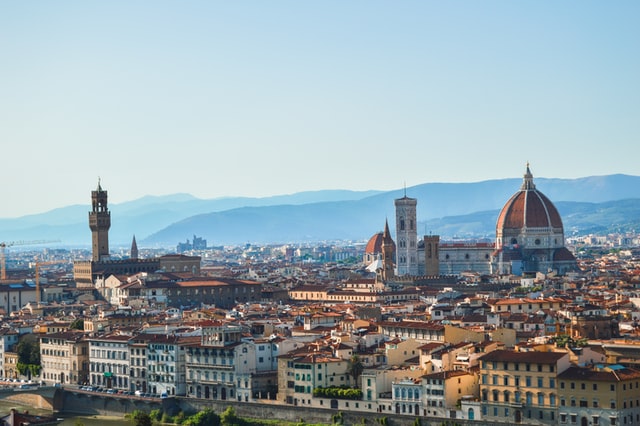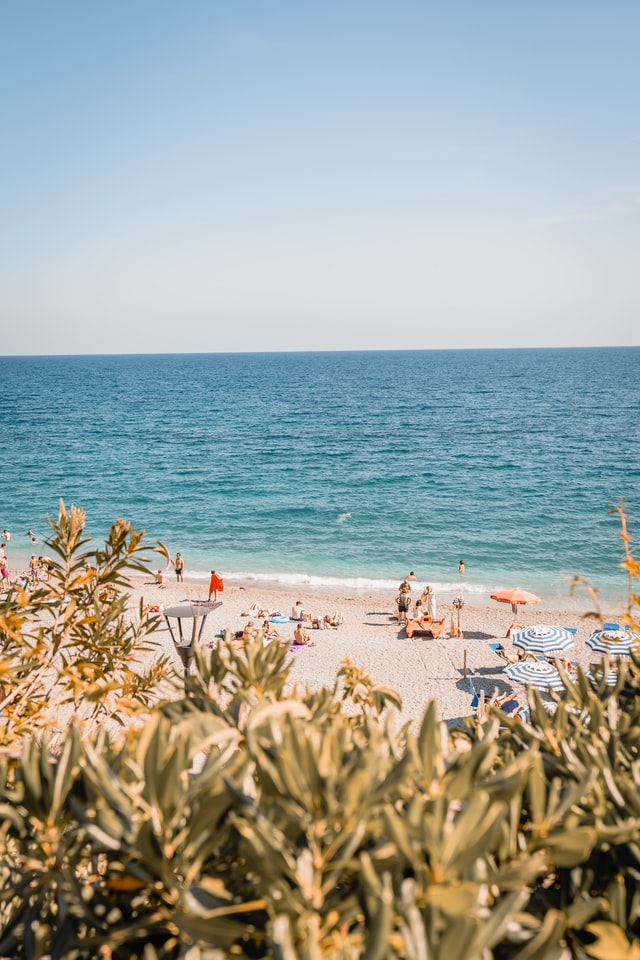Why I Chose to Become an Italian Citizen

It’s an odd concept for many Americans when I tell them that I received my dual Italian citizenship due to the amount of ‘Italian blood’ that I have. The United States has no jure sanguinis, or ‘right of blood’ law in place, like Italy does. Yet, at the age of 22, it allowed me to formally claim my Italian citizenship even though I was not born in the country.
If this sounds like a seemingly easy feat, I’m afraid to tell you that it was anything but. The entire process took more than two years, the majority of which was spent amassing family records dating back to the beginning of the Italian Republic in 1861. This was then followed by three separate interviews at the Italian Consulate over the course of the following year. I was determined, if you hadn’t guessed that already.
I wanted to be a citizen and formally recognize that part of my history and heritage.
Members of my father’s side of the family still live in Italy, and we do talk off and on, but I wanted more. I wanted to be a citizen and formally recognize that part of my history and heritage, not to mention living in Italy without having to obtain a Schengen visa first would be absolute heaven.

It’s an interesting story, how I came to realize that I was rightfully still an Italian citizen–that it had never gone away, even though I had been born in the United States to American parents. As it happens, with the Italian jure sanguinis, there was no limit to the number of generations that could claim their citizenship via blood. However all claims of Italian citizenship by jure sanguinis had to stem from an ancestor who was living after 16 March 1861, the official date of Italy’s unification. Each descendant of this ancestor could therefore pass citizenship to the next generation.
So that was my loophole. My grandfather had been born to Italian immigrants in Columbus, Kansas before either of them had ever become citizens of the United States. Therefore, at the time of his birth my great-grandparents were Italian citizens and only Italian citizens and, therefore, so was my grandfather. Additionally, Italian citizenship law states that, unless a person formally renounces her citizenship it continues to be conferred on each new generation; you only just have to claim it and have it recognized by the Italian government. So, that’s exactly what I did.
Why I Chose to Become an Italian Citizen.

Having finally received my Italian citizenship has changed me, in many ways. I’ve found that I’m accepted by an entirely new group of people as ‘one of them.’ I belong to two countries, simultaneously; sometimes I think, “How crazy is that?!” On a more personal level, it was my way of honoring and embracing where I come from, and the obstacles my great-grandparents had to overcome in emigrating here. I will, of course, always be American, that was ultimately their vision for me, but I am also Italian and I won’t have that side of me diminished just because I live in another country.
I actually decided to return to Italy, not long after I received confirmation of my citizenship, and accepted a job teaching in Milan. It wasn’t the first time that I’d gone to Italy, but it was the first time I had the chance to live there long term, as an Italian citizen. It’s rather ironic, how it all came together actually.
I had initiated the citizenship process more than two years prior to being offered a position in Milan. It just so happened that my application was approved, and my Italian passport issued around the time that the teaching job became available, so I thought, ‘Well why not? There’s really nothing stopping me now!’
In a way, I had always known that I would eventually end up back in Italy. I initially pursued claiming my Italian citizenship so that I would be eligible for Italian jobs after I graduated from college, I really didn’t have a plan, I just knew that I was determined to get back, and that my citizenship would make it even easier for me to do so.
Why I Chose to Become an Italian Citizen.
By the time I had made the decision to move there, I already had my Italian citizenship, so really, I had a rather unfair advantage compared to other ESL teachers that had to go through a lengthy visa process, which I am told included mounds of paperwork. As much as I love Italy, I do have to say that efficiency is not a strong point.
Living in Italy as a citizen, versus when I would come to visit as an American, was a completely different experience. As a citizen, I was able to accept the teaching job, provide them with a copy of my passport, and just show up. Opening a bank account once I got there was extremely easy. An experience I’m told is not shared by many foreigners. Having an Italian bank account to which my paychecks could be directly deposited also made it easier for me to find an apartment and sign the necessary papers. I was able to register with a doctor there rather easily as well.
I’ve found that I’m accepted by an entirely new group of people as ‘one of them.’
Overall, when comparing my experience with my colleagues’, mine was much more fluid and expedited in most cases. I found that whatever documents I might need, be it for housing, a metro card or setting up a cellphone plan, I always received them months before my coworkers did. When traveling around the European Union, or even outside it, I also found that my Italian passport never failed to get me through the passport checkpoint in record time but letting me hop in the ‘EU citizens’ if the ‘all citizens’ one was too long. To most, this probably doesn’t sound like too important of a reason for having two passports. But I always get a kick out of it!
To say that my family was overwhelmingly supportive of me on my mission to claim my Italian citizenship is an understatement. They helped me track down the numerous birth, marriage, and death certificates for three separate generations. And they helped with when getting the American documents translated into Italian.
Having dual Italian-American citizenship is not a thing that I take lightly; I fully view having both citizenships as a privilege that isn’t to be abused. At the end of the day, I accept that my behaviors are American. My accent is American. And my general mindset is American. But it is a unique. And humbling experience to be able to arrive at whichever airport I please in Italy and be told ‘Benvenuta a casa Signora Castago’ (Welcome home Ms. Castagno).
Why I Chose to Become an Italian Citizen photo credits: Unsplash.









The article beautifully outlines the personal journey of choosing to become an Italian citizen, highlighting the emotional and practical aspects of the decision. It’s inspiring to read about the connection between heritage and identity, as the author shares the deeper significance of reconnecting with their roots. The exploration of Italy’s cultural and historical richness provides a compelling backdrop for why someone might seek citizenship.
The narrative is not just about paperwork and bureaucracy; it also emphasizes the sense of belonging and the pride that comes with embracing a new nationality. The article also touches on the personal benefits, like the freedom to live, work, and travel within the European Union. It serves as a reminder of the power of citizenship in shaping one’s life, offering new opportunities and a deeper connection to a place that holds personal meaning.
Overall, this piece resonates with anyone who has ever considered dual citizenship or longed to feel more rooted in a particular culture.